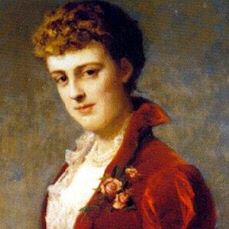Why a Novel’s First Chapter Is Crucial
4/7/2015 GETTING A GOOD START: WHY A NOVEL’S FIRST CHAPTER IS CRUCIAL
So you’re browsing the bargain table at your favorite bookstore, the latest recommendations from Amazon, or maybe perusing your local library’s “new fiction” shelf. A cover appeals to you, you read the blurb on the back, and you open it to taste the first sentences. Within seconds, you make a decision: To read or not to read. The book goes back on the shelf or you decide to take it home with you. It’s a kind of one-way speed dating where first impressions mean everything.
I’ve been pondering the beginnings of novels as part of a course I’m teaching to would-be novelists, a course that inevitably involved critiquing their first chapters. I told them that as writers in the rapidly changing world of social media, fierce competition, and limited attention spans, the first chapter—and really the first page—is crucial to success. The opening of a story has to contain what editors call the narrative hook—an early sign of the conflict or problem that will grab a reader’s attention and pull her in. There has to be something irresistible on the first page that will make her turn to the second.
But the pressure doesn’t end there. With growing evidence that readers are more and more willing to abandon books even after reading several pages, the first chapter carries a huge burden. In addition to the narrative hook, the author must establish a voice that appeals to the reader, who has to feel comfortable spending the next few hundred pages with that voice. She also has to establish the key characters and show that they are complex, appealing but flawed, with significant problems to solve. And she has to make the reader feel that the stakes are high, so that solving the problem is important.
While the Internet age has made very fast beginnings more important than ever, good authors have always used the first chapter to lay the foundation for everything that follows. Read Edith Wharton’s classic House of Mirth and then go back and reread her first chapter. If you study it closely, you’ll be amazed to see that it foreshadows everything that will happen later in the novel, even the ending. It’s very subtle and most of it you’d never notice on the first reading, but I have to believe that this masterful chapter works on the reader’s subconscious in a way that makes the entire novel more enjoyable and more worthwhile.
I’m now in the midst of reading another novel with a impressive first chapter—Jonathan Dee’s The Privileges. The novel is a look at morals and values through the lives of a seemingly charmed couple, and the opening chapter describes the couple’s wedding day in brilliant detail. Dee has a remarkable way of describing all of the key players on that milestone day, capturing in a sentence or paragraph the essence of a dozen characters, from wedding planner to best man to maid of honor to parents and siblings of the happy couple. But most important, he uses the behavior of the bride and groom to lay the foundation for their married life (and the crux of the novel) that will follow.
A few days ago, my colleague Terra Ziporyn used this space to talk quite eloquently about endings, which have a different kind of importance, creating a reader’s last impression of a novel rather than the first. But as Terra noted, a strong ending often has its foundation in a good beginning.
In our novel-writing class, we had some fun looking at some famous first lines. My favorite was from Ernest Hemingway’s The Old Man and the Sea:
“He was an old man who fished alone in a skiff in the Gulf Stream and he had gone eighty-four days now without taking a fish.”
This deceptively simple sentence accomplishes so much: It sets the tone and voice of everything that will follow, while laying out the central conflict and the character who faces it.
Here are some others that were offered up.
“It was a bright cold day in April, and the clocks were striking thirteen.”
—1984 by George Orwell
“Ships at a distance have every man’s wish on board.”
—Their Eyes Were Watching God by Zora Neale Hurston
“We started dying before the snow, and like the snow, we continued to fall.”
—Tracks by Louise Erdrich
“All this happened, more or less.”
—Slaughterhouse-Five by Kurt Vonnegut
I’d love to hear what your favorite first lines are. Just offer them in the comment section below.
Mark Willen
Mark Willen’s novels, Hawke’s Point, Hawke’s Return, and Hawke’s Discovery, were released by Pen-L Publishing. His short stories have appeared in Corner Club Press, The Rusty Nail. and The Boiler Review. Mark is currently working on his second novel, a thriller set in a fictional town in central Maryland. Mark also writes a blog on practical, everyday ethics, Talking Ethics.com.
- Web |
- More Posts(48)
